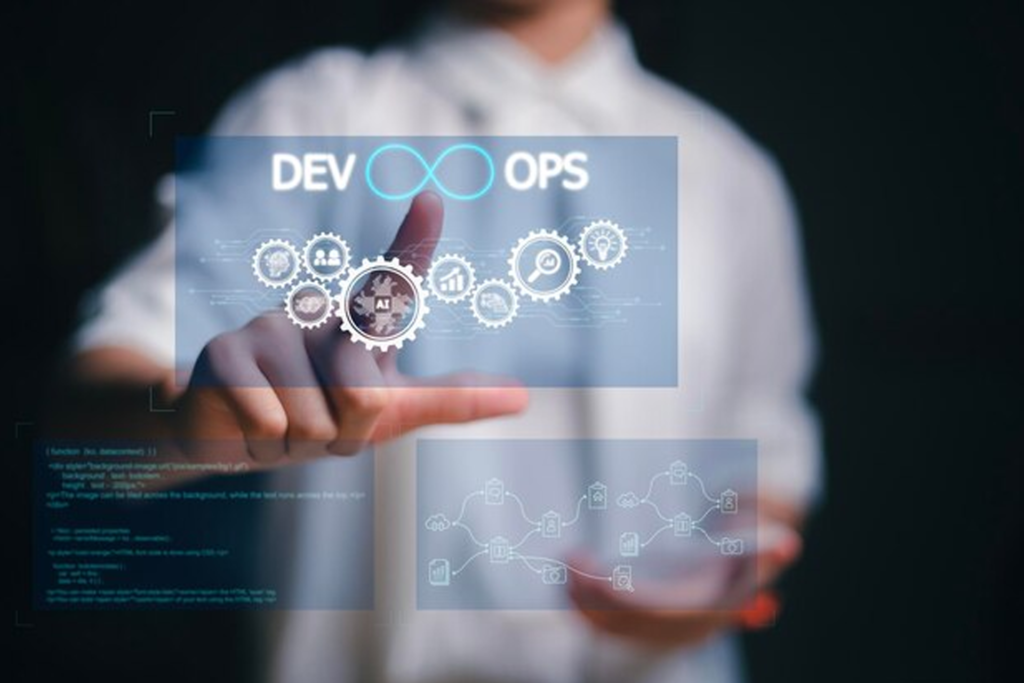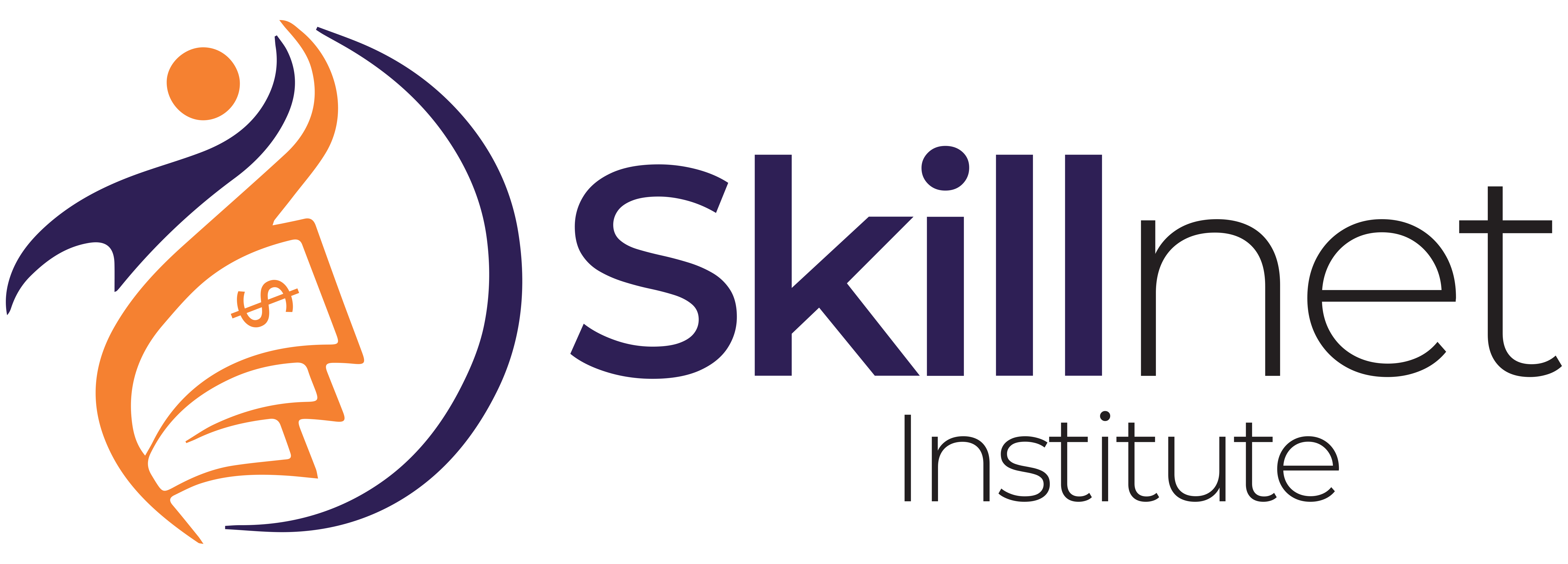Master DevOps, Accelerate Development
Streamline processes, boost efficiency.
Transform Your Business with Streamlined DevOps Solutions
- 4 Weeks
- All levels
- 3 Lesson
- 0 quizzes
- 26 students
15,000 PKR

Master the principles of DevOps at Skillnet. Learn how to bridge the gap between development and operations, automate workflows, and enhance productivity. Gain the skills to optimize software delivery like a pro.
Advance Your DevOps Skills with Skillnet: Streamline, Automate, Deploy
Imagine delivering software faster and with fewer errors! Our course will teach you to foster collaboration, automate tasks, and create efficient workflows. Ready to transform your processes?
-
Basics of DevOps (15 Hours)
-
- Introduction to DevOps
- Overview of DevOps principles and benefits.
- The DevOps lifecycle: Continuous Integration, Continuous Delivery, and Continuous Deployment.
- DevOps Culture and Collaboration
- Fostering collaboration between development and operations teams.
- Breaking down silos and improving communication.
- Version Control Systems (VCS)
- Introduction to Git and GitHub.
- How VCS enables collaboration and version tracking.
- Git Basics
- Cloning, committing, branching, and merging.
- Working with remote repositories.
- GitHub Workflow
- Pull requests, issue tracking, and project boards.
- Using GitHub for collaboration and code review.
- Understanding Continuous Integration (CI)
- What is CI?
- The importance of integrating code frequently.
- CI Tools Overview
- Popular CI tools: Jenkins, Travis CI, CircleCI.
- Setting up a basic Jenkins pipeline.
- Automated Testing in CI
- Introduction to unit testing and integration testing.
- Running tests automatically in a CI pipeline.
- Managing Dependencies
- Using dependency managers (e.g., npm, Maven, Pip).
- How DevOps handles dependencies in CI.
- Introduction to CI/CD Concepts
- Understanding the connection between CI and Continuous Delivery (CD).
- Benefits of automating the software delivery process.
- Introduction to DevOps
-
Continuous Delivery (CD) (15 Hours)
-
- Introduction to Continuous Delivery
- What is Continuous Delivery?
- Key differences between Continuous Delivery and Continuous Deployment.
- Jenkins Overview
- Setting up Jenkins for automation.
- Configuring Jenkins pipelines for CI/CD.
- Pipeline as Code
- Defining Jenkins pipelines using code (Jenkinsfile).
- Best practices for pipeline management.
- Infrastructure as Code (IaC)
- What is Infrastructure as Code?
- Benefits and principles of IaC.
- Terraform Basics
- Introduction to Terraform for provisioning infrastructure.
- Writing and deploying infrastructure code with Terraform.
- Ansible for Configuration Management
- Automating server configurations with Ansible.
- Writing Ansible playbooks for deployment and configuration.
- Monitoring and Logging
- Importance of monitoring and logging in DevOps.
- Tools for monitoring: Prometheus, Grafana.
- Centralized logging with ELK stack (Elasticsearch, Logstash, Kibana).
- CD Pipeline Best Practices
- Best practices for ensuring reliable and efficient delivery.
- Managing environments (development, staging, production).
- Automated Testing in CD
- The role of automated testing in CD pipelines.
- Tools for automated testing: Selenium, JUnit, Postman.
- Security in Continuous Delivery
- Implementing security checks in the CD pipeline.
- DevSecOps practices for integrating security into DevOps.
- Introduction to Continuous Delivery
-
Containerization and Orchestration (15 Hours)
-
- Introduction to Containers
- What are containers?
- Benefits of using containers in DevOps.
- Docker Basics
- Introduction to Docker: creating and managing containers.
- Writing Dockerfiles and building Docker images.
- Container Networking
- How containers communicate with each other.
- Networking and DNS configuration in Docker.
- Docker Compose
- Using Docker Compose to manage multi-container applications.
- Defining services and networks in YAML files.
- Kubernetes Overview
- Introduction to Kubernetes and its role in orchestration.
- Key concepts: pods, nodes, clusters.
- Deploying Containers with Kubernetes
- Deploying and managing containers in Kubernetes.
- Configuring Kubernetes pods and services.
- Scaling Applications in Kubernetes
- Horizontal and vertical scaling in Kubernetes.
- Autoscaling with Kubernetes.
- Kubernetes Networking
- Service discovery and load balancing in Kubernetes.
- Ingress controllers and external access.
- Best Practices for Containerization
- Container security and vulnerability scanning.
- Optimizing Docker images for performance and size.
- Continuous Delivery with Kubernetes
- Integrating Kubernetes with CI/CD pipelines.
- Automating deployment to Kubernetes clusters.
- Introduction to Containers
-
Final Project (15 Hours)
-
- Building a CI/CD Pipeline
- Design and implement a CI/CD pipeline using Jenkins and Git.
- Automating code integration, testing, and deployment.
- Deploying Infrastructure with Terraform
- Provision infrastructure with Terraform and integrate with the pipeline.
- Deploy resources to cloud providers like AWS or Azure.
- Configuring Application Deployment
- Set up a deployment pipeline for a web application.
- Automate app deployment using Jenkins and Docker.
- Containerizing Applications
- Dockerize a sample application and deploy it in a Kubernetes cluster.
- Automate the containerization process.
- Kubernetes Orchestration for DevOps
- Set up and configure Kubernetes for application deployment.
- Implement rolling updates and rollback in Kubernetes.
- Monitoring and Logging Implementation
- Set up Prometheus and Grafana for monitoring Kubernetes workloads.
- Implement centralized logging with ELK stack.
- Security in the Final Project
- Integrate security checks into the CI/CD pipeline.
- Automate vulnerability scanning and remediation.
- Testing and Debugging in DevOps
- Implement end-to-end testing for the project.
- Troubleshooting and debugging the CI/CD pipeline.
- Project Presentation and Review
- Present the project and discuss the implementation.
- Review and analyze the effectiveness of the pipeline.
- Project Refinement
- Refine the project based on feedback.
- Submit the final working CI/CD pipeline and documentation.
- Building a CI/CD Pipeline
Learning Outcomes
This DevOps course provides students with the skills and knowledge needed to automate and streamline software development and operations. Upon completion, students will be able to:
- Understand and apply DevOps principles and practices to improve collaboration between development and operations teams.
- Implement version control systems (such as Git) to manage code efficiently and facilitate continuous integration.
- Automate build, test, and deployment processes using CI/CD tools like Jenkins and Terraform for faster and more reliable releases.
- Use containerization tools like Docker and Kubernetes to manage application deployment and orchestration at scale.
- Monitor and maintain applications with DevOps tools, ensuring high availability and performance.
- Integrate security practices into the DevOps pipeline, following the DevSecOps approach for secure software delivery.
